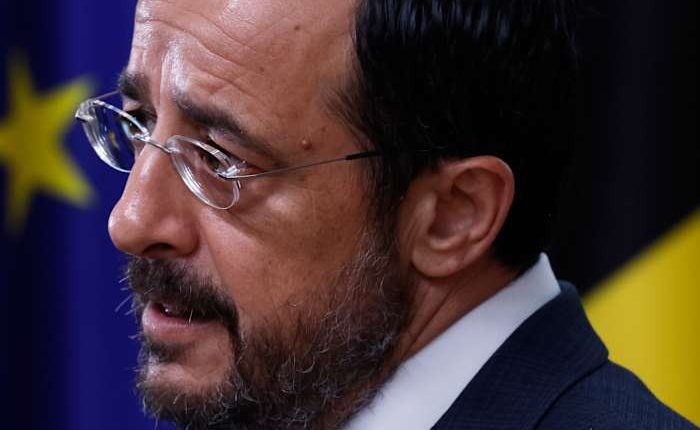Share this @internewscast.com

TANZANIA – This month, U.N. Secretary-General António Guterres plans to reconvene the opposing leaders of Cyprus, who are divided along ethnic lines. This decision follows a recently held meeting that was described as having a “constructive atmosphere,” with the aim of resuming stalled peace negotiations, according to a United Nations spokesman on Wednesday.
Stéphane Dujarric mentioned that the informal discussions scheduled for July 16-17 at the U.N. headquarters in New York will serve as a platform to continue conversations and assess the developments achieved since March.
During the previous meeting, Greek Cypriot President Nikos Christodoulides and Turkish Cypriot leader Ersin Tatar reached an agreement on trust-building measures. These include cooperation in areas such as energy and the environment, establishing four additional crossing points across a U.N.-supervised buffer zone, as well as focusing on youth issues and demining initiatives.
The Mediterranean island was divided in 1974 when Turkey invaded following a coup by Athens junta-backed supporters of uniting the island with Greece. Only Turkey recognizes a Turkish Cypriot declaration of independence, and it maintains more than 35,000 troops in the island’s northern third.
Negotiations between the rivals have been stalled since 2017.
Maria Angela Holguin, a new envoy Guterres appointed, said at the end of her first weeklong visit to Cyprus in late May that Guterres “continues to push” for a resumption of peace talks.
But no breakthrough is expected at the meeting this month because Turkey and Turkish Cypriot insist on a two-state accord that Greek Cypriots flatly reject.
The agreed-upon, U.N.-endorsed framework for a peace deal has been a reunified Cyprus as a federation composed of Greek Cypriot and Turkish Cypriot zones.
Ever since his 2020 election, Tatar has been demanding a two-state deal. He faces reelection in October and says he’s running on the same two-state platform with Ankara’s full backing.
Greek Cypriots say they won’t agree to any accord that formally partitions the island, allows for a permanent Turkish troop presence, gives Turkey rights to militarily intervene or offers the minority Turkish Cypriots a veto right on all government decisions.
Despite these differences, the rivals have made some progress on trust-building measures, which also include work on a photovoltaic park inside the buffer zone and restoration work on cemeteries on both sides of the divide.
___
AP writer Menelaos Hadjicostis contributed from Nicosia, Cyprus.
Copyright 2025 The Associated Press. All rights reserved. This material may not be published, broadcast, rewritten or redistributed without permission.











